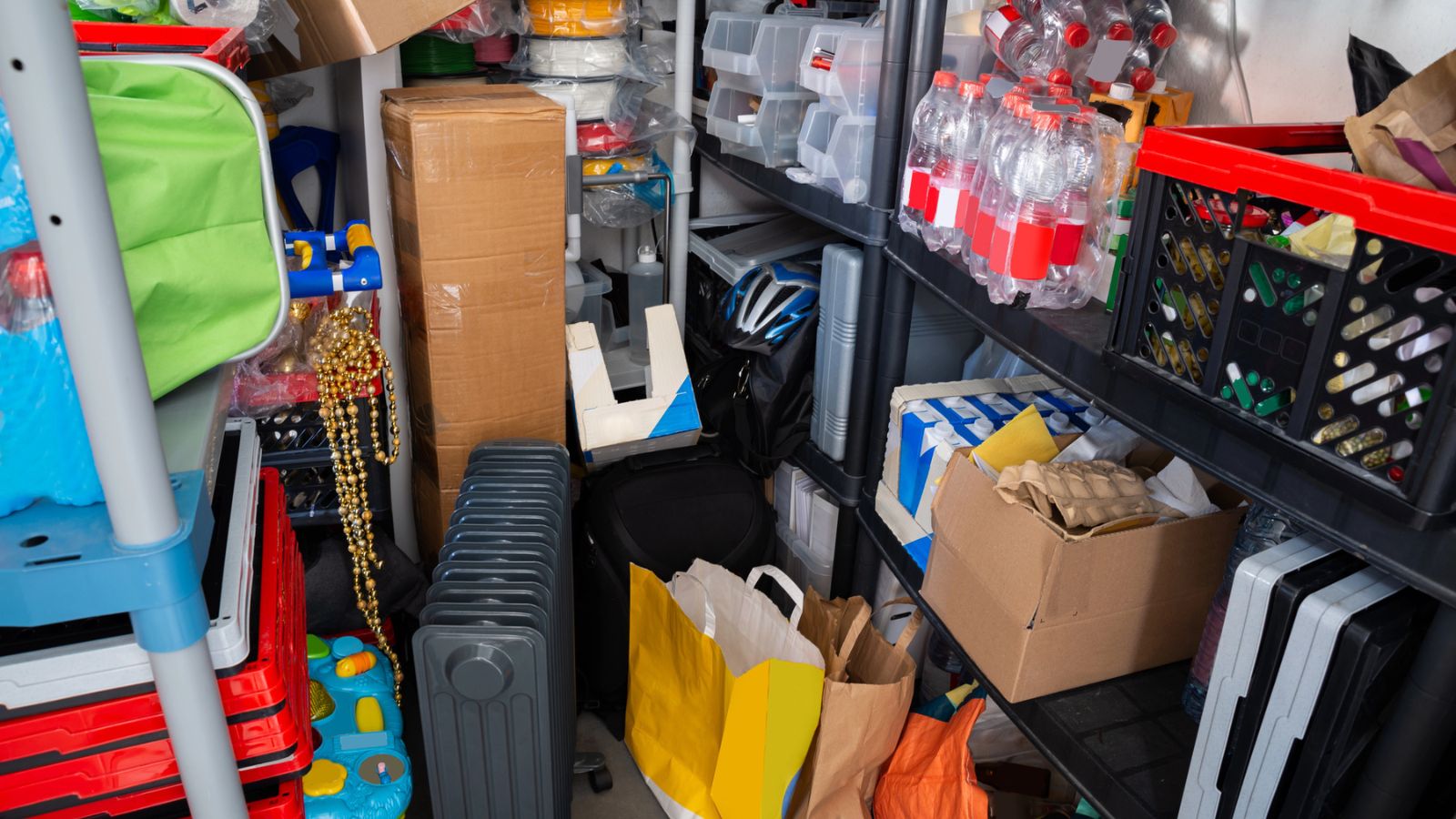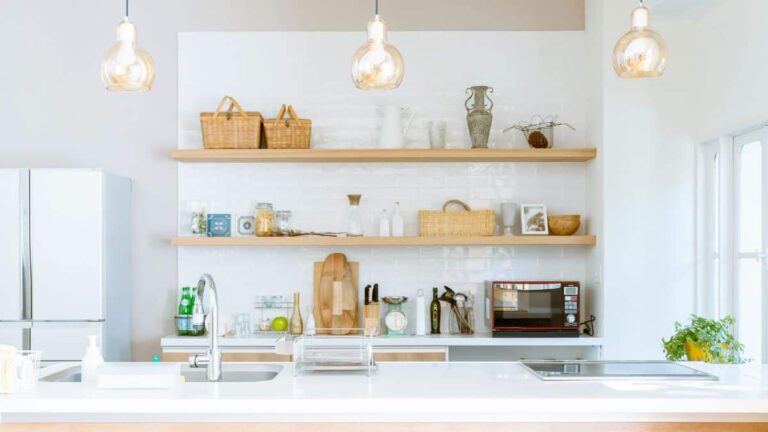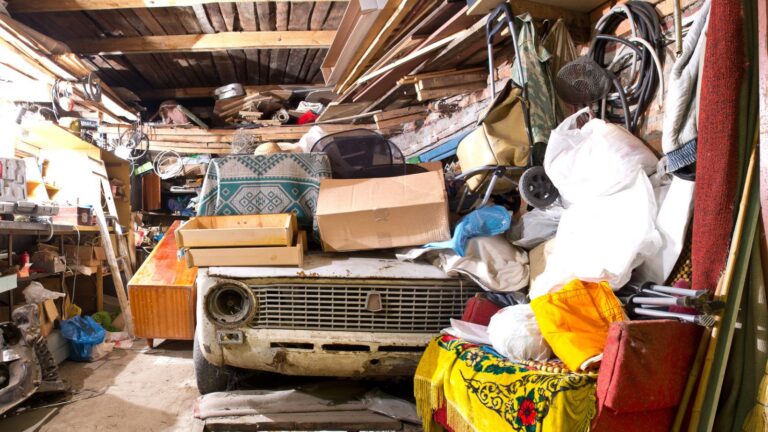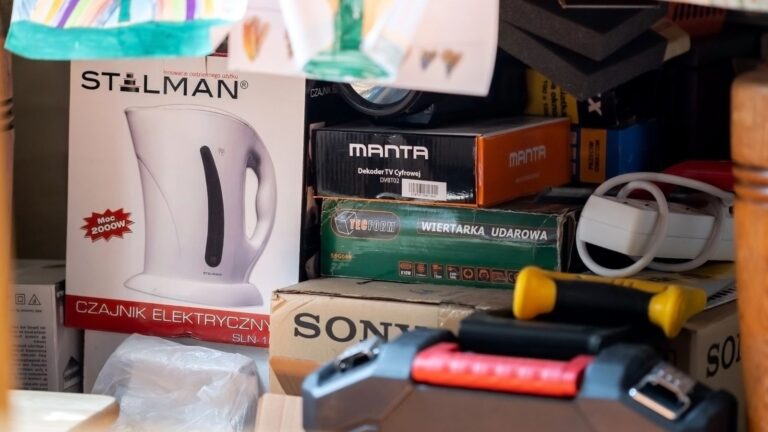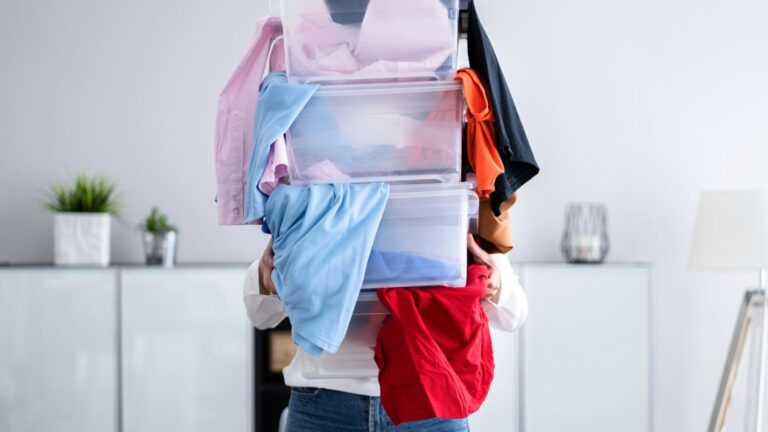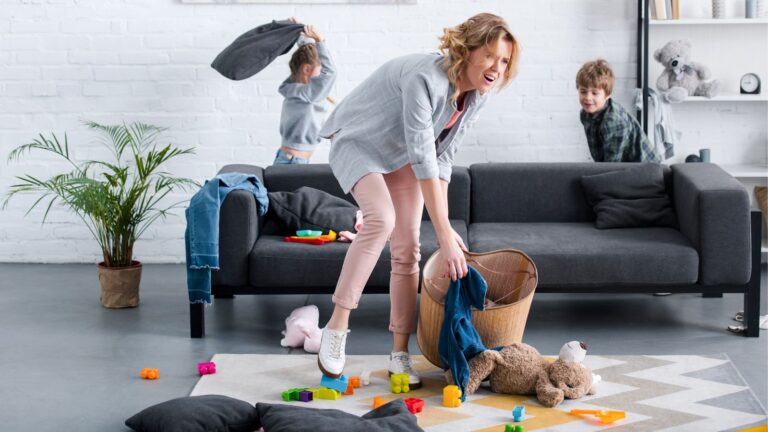9 Clutter Traps That Waste Space and Money
It’s easy for stuff to pile up without you even realizing it. A few forgotten items here, a junk drawer there—and suddenly, your home feels chaotic. These common clutter traps not only eat up space but can also quietly cost you money.
This article may contain affiliate links. See our disclosure policy for more info.
Expired Pantry Goods
That overstuffed pantry may be hiding more than snacks. Expired food often gets pushed to the back and forgotten. When you’re unsure of what you have, you’re more likely to rebuy items you already own. Take a few minutes each month to check expiration dates and rotate older items forward. Clear bins can help you group similar things together so nothing gets lost in the shuffle. You’ll save money by actually using what you buy—and keep your pantry from becoming a black hole.
Overflowing Bathroom Cabinets
Half-used lotions, expired makeup, and mystery products can quickly take over your bathroom. When your cabinets are full of clutter, it’s harder to find the things you actually use, which may lead you to repurchase them unnecessarily. Toss anything that’s past its prime, and keep only what you reach for regularly. Try using drawer dividers or small baskets to keep items organized and visible. A little order goes a long way in a small space like this.
Unused Kitchen Gadgets
It’s easy to get swept up in the idea of a gadget that will change the way you cook. But once the novelty wears off, many of them end up collecting dust. If it hasn’t been used in over a year, it may be time to donate it or pass it along. Clearing out unused tools not only frees up valuable cabinet space but also makes it easier to get to the things you actually rely on. Your kitchen will feel less chaotic—and you won’t be tempted to keep buying tools you don’t really need.
Overflowing Closets
Closets stuffed with clothes you don’t wear can feel overwhelming. You may forget what you have and continue shopping to fill “gaps” that don’t really exist. Go through your closet seasonally and be honest about what fits your lifestyle. If something hasn’t been worn in the past year, it’s probably not worth keeping. Letting go of excess makes room for pieces you actually enjoy wearing—and may stop you from wasting money on duplicates.
Paper Piles and Junk Mail
Stacks of unopened mail, old receipts, and random paperwork can take over your counters and desk. It doesn’t just make your space look messy—it can lead to late fees, missed deadlines, or rebuying documents you can’t find. Make a habit of sorting your mail daily and shred what you don’t need. Set up a small filing system for papers you do need to keep. Going paperless where possible can also cut down on the incoming clutter.
Storage Bins Filled With “Just in Case” Items
It’s tempting to hang onto things “just in case,” but that mindset can quickly turn into bins and boxes of stuff you never touch. If you’re paying for storage or cramming closets with rarely used items, it may be time to reassess. Ask yourself if you’d actually replace the item if you needed it again. If not, it’s probably safe to let go. The more you hold onto for no real reason, the more space and money you’re giving up.
Toys That No Longer Get Played With
Toys have a way of multiplying fast, especially when kids outgrow them before they wear out. Hanging onto every toy for nostalgia—or because you spent money on it—just adds to the mess. Go through toys every few months with your child and choose a few to donate or pass along. Keeping fewer toys in rotation makes cleanup easier and may actually encourage more focused play. It also helps you avoid wasting money on replacements you don’t need.
Duplicates You Forgot You Had
How many tape dispensers or phone chargers do you actually need? When things aren’t stored in an organized way, it’s easy to lose track and buy duplicates. This happens a lot with office supplies, cleaning products, and toiletries. A quick check before shopping and a dedicated space for each type of item can help you avoid accidental repeats. Being able to see what you have makes it easier to use up what you already own.
Decor That Doesn’t Serve a Purpose
Decor is meant to add something to your space, but too much of it can start to feel like clutter. If every surface is covered, the items you actually love may get lost in the noise. Try clearing off shelves or tabletops and only keeping the pieces that truly make you happy. You’ll make your home feel more open—and stop spending money on decorations that end up in storage bins a few months later.
Clearing the Clutter Means More Room to Breathe
Most of us don’t set out to waste money on clutter—it just happens slowly over time. But once you start paying attention to the spots where stuff tends to pile up, it gets easier to keep it under control. Taking a little time to clear out these problem areas can give you more space, save you money, and make your home feel a whole lot better to be in.
This article first appeared on Happy From Home.

